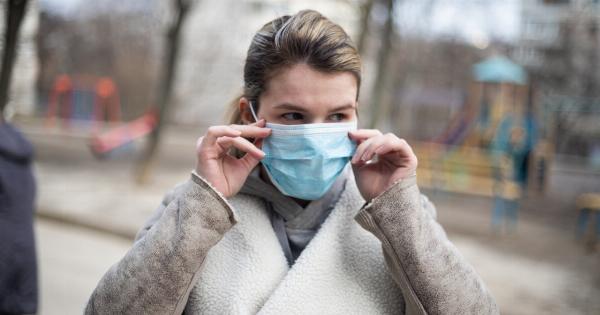Winter brings with it cold temperatures, low humidity, and an increase in viral infections. These factors can have a significant impact on our immune system, making us more susceptible to illnesses.
In this article, we will explore the various ways in which winter weather can affect our immune system and discuss strategies to boost our immune response during this season.
1. Dry air and weakened defenses
During winter, the air becomes drier due to lower humidity levels. This dry air can irritate our respiratory system and make it easier for pathogens to enter our body.
Additionally, dry air can lead to dry mucous membranes in the nose and throat, reducing their ability to trap and eliminate viruses and bacteria.
2. Vitamin D deficiency
During winter, our exposure to sunlight decreases, which affects our body’s production of Vitamin D. Vitamin D plays a crucial role in our immune system, helping to activate immune cells and fight off infections.
A deficiency in Vitamin D can weaken our immune response, making us more vulnerable to illnesses.
3. Reduced physical activity
Many people tend to be less physically active during winter, preferring to stay indoors where it is warm. This decrease in exercise can have a negative impact on our immune system.
Physical activity helps stimulate the circulation of immune cells in our body, making them more efficient in detecting and eliminating pathogens. Lack of exercise can weaken our immune defenses and increase the risk of infections.
4. Seasonal affective disorder (SAD)
Seasonal affective disorder, or SAD, is a type of depression that occurs during specific seasons, primarily in winter. This condition can affect our immune system by altering hormone levels and neurotransmitters in our brain.
People with SAD often experience a weakened immune response, making them more susceptible to infections.
5. Increased exposure to viruses
Winter weather often leads to people spending more time indoors and in close proximity to others. This increased exposure to crowded spaces, such as public transportation or shopping centers, can facilitate the spread of viruses.
Common respiratory viruses like the flu or common cold thrive in such environments, increasing the risk of infection.
6. Stress and immune function
Winter can be a stressful time with the pressures of holidays and inclement weather. Chronic or excessive stress can weaken the immune system, making it harder for our body to fight infections.
Stress hormones released during times of stress can suppress immune responses, making us more susceptible to illnesses.
7. Poor ventilation
In winter, people tend to keep windows and doors closed to retain heat, leading to poor ventilation in homes and workplaces.
Poor ventilation can result in the accumulation of indoor pollutants, such as dust, pet dander, and mold spores, which can trigger allergies and respiratory problems. These allergic reactions can further compromise our immune system and increase the chances of infections.
8. Cold temperature and blood vessels
Exposure to cold temperatures causes our blood vessels to constrict, reducing blood flow to certain parts of the body. This constriction can impact immune responses by hindering the delivery of immune cells and antibodies to infected areas.
As a result, the immune system may struggle to effectively combat pathogens, leading to a higher vulnerability to illnesses.
9. Dehydration
During winter, people tend to drink less water compared to warmer months. This decreased water intake can lead to dehydration, which affects the functioning of our immune system.
Hydration is essential for the production of lymph, a fluid that carries infection-fighting immune cells throughout our body. Without adequate hydration, the immune response can be compromised.
10. Inadequate sleep
Colder temperatures and longer nights can disrupt our sleep patterns during winter. Lack of sleep has been associated with a weakened immune system, making us more susceptible to infections.
Sleep deprivation affects the production of immune cells and antibodies, impairing their ability to battle pathogens effectively.































